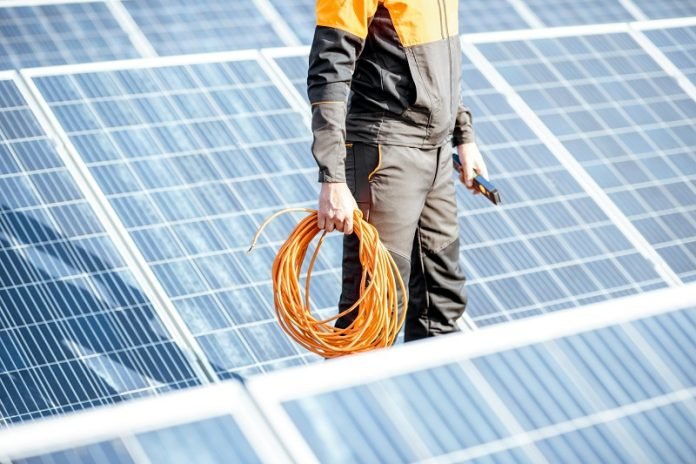
Uppsala University, in collaboration with First Solar European Technology Center, has achieved a new world record in solar energy efficiency.
They’ve created a type of solar panel that converts sunlight into electricity with 23.64% efficiency.
This achievement surpasses the previous record set by Solar Frontier in Japan and marks a significant milestone in solar energy research.
The technology behind this record-breaking performance involves copper indium gallium selenide (CIGS) solar cells.
These solar panels are made by layering different materials on a sheet of glass, each layer having a specific role in capturing sunlight and transforming it into electric power.
One of the key ingredients in boosting the solar panel’s efficiency is the addition of rubidium fluoride, which helps in effectively converting sunlight to electricity.
The efficiency of these solar panels was verified by Fraunhofer ISE, an independent institute in Germany, ensuring the results are accurate and unbiased. This validation process is crucial for setting a new world record in solar panel efficiency.
Solar energy is a growing part of our global energy supply, accounting for over 6% of the world’s electricity in 2022.
The challenge has been to create solar panels that are not only efficient but also affordable and durable.
The goal for researchers like those at Uppsala University is to develop solar panels that can exceed 30% efficiency without skyrocketing production costs.
CIGS technology, known for its reliability, offers a promising path forward, especially in combination with other solar technologies to create even more efficient systems.
In their research, the team at Uppsala University used advanced techniques to study the solar panel’s structure and materials closely.
This included examining the solar cell’s composition and how its layers work together to convert sunlight into electricity. Their findings could help improve solar panel designs in the future, making them even more efficient and cost-effective.
This new record is not just a win for Uppsala University and First Solar European Technology Center but also a significant advancement for solar energy worldwide.
It demonstrates the potential of CIGS solar panels as a viable option for powering our homes, businesses, and beyond. The hope is that this breakthrough will lead to further innovations, making solar energy an even more attractive option for meeting our energy needs sustainably.
By setting a new world record for solar panel efficiency, Uppsala University is leading the way in renewable energy research.
This achievement not only showcases the potential of CIGS technology but also highlights the importance of ongoing innovation in the solar industry.
As solar energy continues to grow in popularity and accessibility, breakthroughs like this are essential for creating a greener, more sustainable future.



